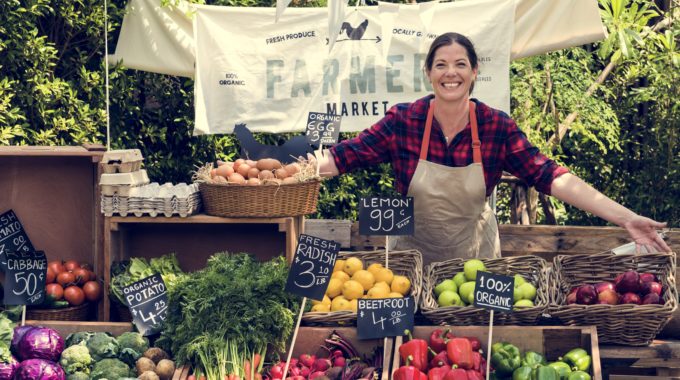Farmers’ markets: our local heroes
Pre-lockdown, a visit to one of your local farmers’ markets wasn’t just an opportunity to source quality fresh local produce. It was also a chance to get out and meet friends, enjoy some great food and a good chat, browse the various stalls; maybe even listen to some live music. It was a pleasurable way to shop for farm-fresh, healthy food. It’s also a rewarding way to connect with the local community.
But once lockdown hit, and all the social aspects fell away, our farmers’ markets truly came into their own. As safe, reliable places to source fresh, locally-grown seasonal produce.
From the outset of our new, not-so-normal lives, federal and state governments classified farmers’ markets as an essential service. This meant that markets could still go ahead, albeit with numerous public health safety restrictions in place. Market managers had to ensure that shoppers strictly adhered to 1.5m social distancing rules. Queues needed to be managed, stalls had to be further apart or moved from indoors to outdoors and outdoor seating areas had to be removed. People were encouraged to “shop and go” rather than hang around and catch up with friends.
While some markets elected to close during the pandemic, many others continued to operate. And in many cases, the role that these markets have played during this time has led to even stronger community ties being forged. There has also been a heightened public awareness of what an integral part farmers’ markets can play in our food supply chain.
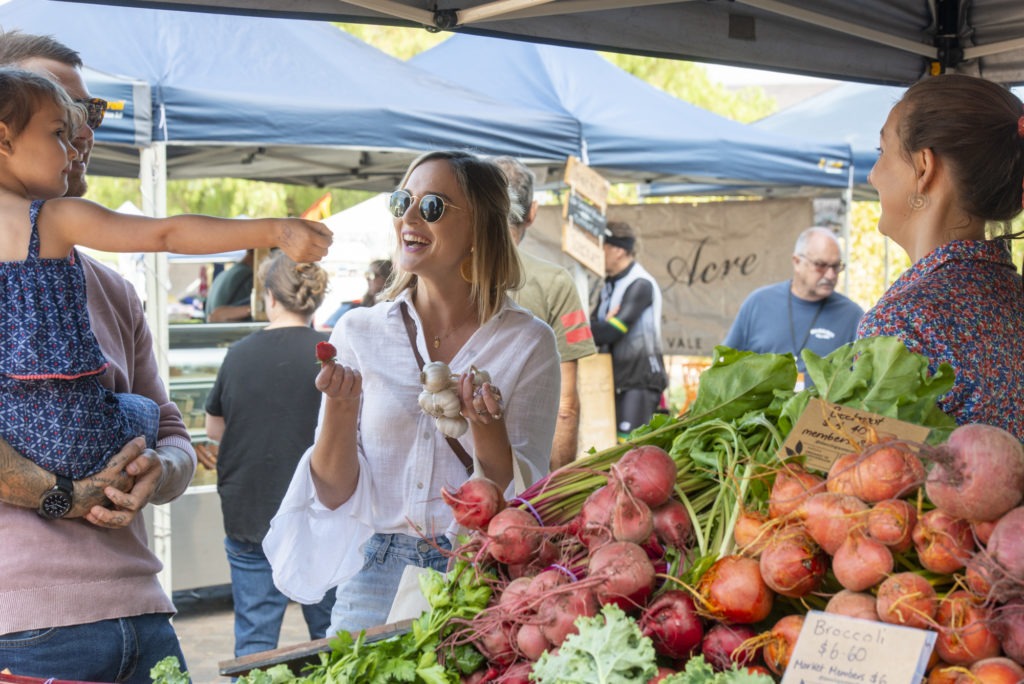
Fresh is best
Jenni Mitton is the manager of the Willunga Farmers’ Market, in South Australia’s Fleurieu Peninsula. The market continued to operate throughout the pandemic. When the lockdown began, she and her small team managed to set up an online shopping service for members within 48 hours. The service was mainly for those unable to visit the market due to age or health problems. It was an immediate hit.
“People loved it,” says Mitton. “The first week was a bit of a trial. We just did a dozen orders to see how it would all work. And then from there, we just upscaled the service with some more volunteers. It’s worked really, really well.”
But Mitton also noticed that many people were still wanting to come to the market to buy their food. Some past market members even re-joined.
“The fresh producers – meat, bread, eggs, vegies, fruit – they’re just getting absolutely cleaned out every week,” she says. “I think people are a lot more comfortable coming and shopping at the market in the fresh air.
“And I think they’re realising that the core of what a farmers’ market is all about is fresh produce. The extra things are simply that – extra pleasures like social gathering, going out for breakfast. When you take those away, the market is still there for what it was intended to be in the first place. For people to shop direct from a farmer and buy good food.”
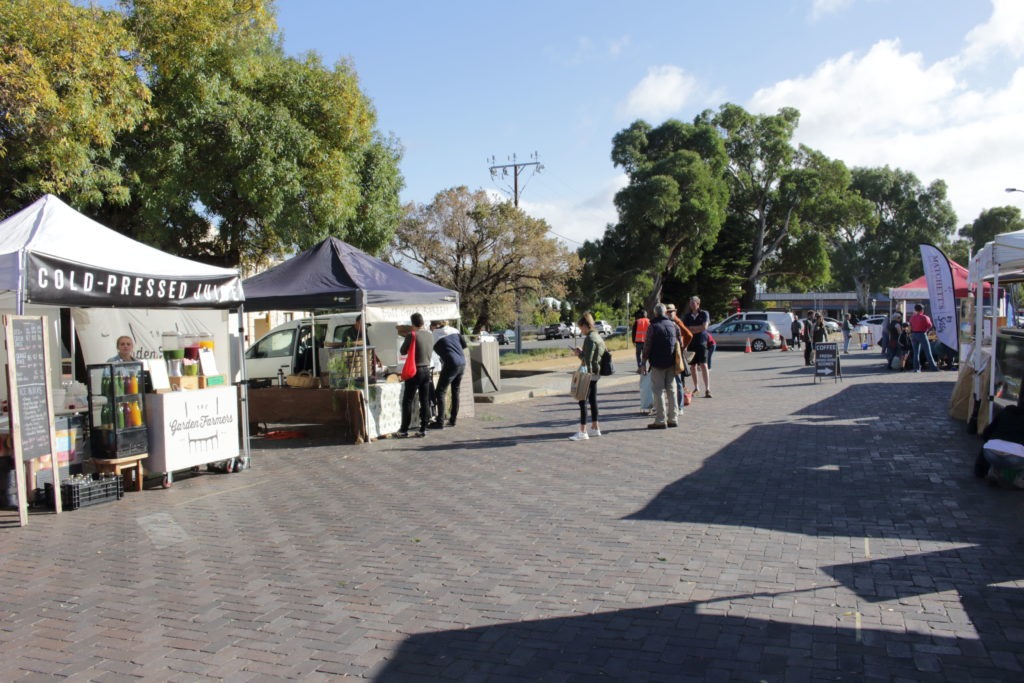
Love your local
On NSW’s north coast, the Byron and Bangalow Farmers’ Markets also continued to operate, with restrictions. Kylie McGregor manages both markets, and says that, at first, the loss of the markets’ usual colourful and lively atmosphere was felt strongly by shoppers.
“For the first couple of weeks, when the COVID restrictions came in, there was a little bit of a flatness,” she says. “People were just feeling flat in general, I think. But after that, once people got the hang of the 1.5 metre social distancing, and how all the other restrictions were working, there was an upbeat feeling again.”
The Byron and Bangalow markets also started offering a delivery box scheme for immunocompromised and elderly customers. But after a few weeks, other locals stepped up to take over the reins, leaving McGregor and her team more time to focus on ensuring the markets were adhering to restriction requirements.
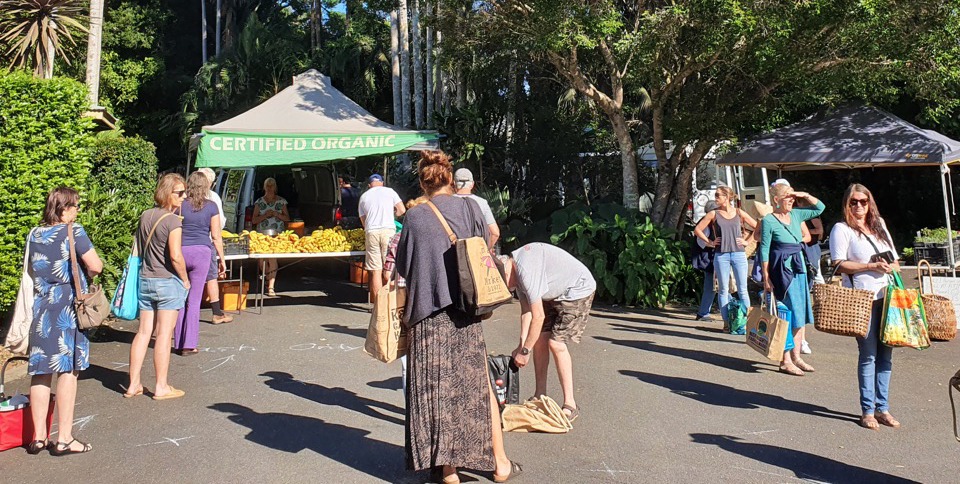
Numbers are up
Much like the Willunga market, McGregor also noticed that there were plenty of people still wanting to shop at the Byron and Bangalow markets during the lockdown period. It wasn’t just regular customers continuing to shop there; the team noticed an overall increase in customer numbers despite the lack of the usual tourist trade.
“Most of our fresh food producers and farmers have experienced increases in sales,” she says. “We’re putting that down to a few different things. First of all, I think that people feel safer shopping outdoors than they do in the supermarket.
“Also, people who regularly come are probably buying more than they normally would. They’re not going out to eat at cafes and restaurants. And then we’ve seen some new faces, people who would normally be working and previously couldn’t get there.
“But I think there’s also a real push – probably nationally, but certainly in this region – a real push to support local producers.”
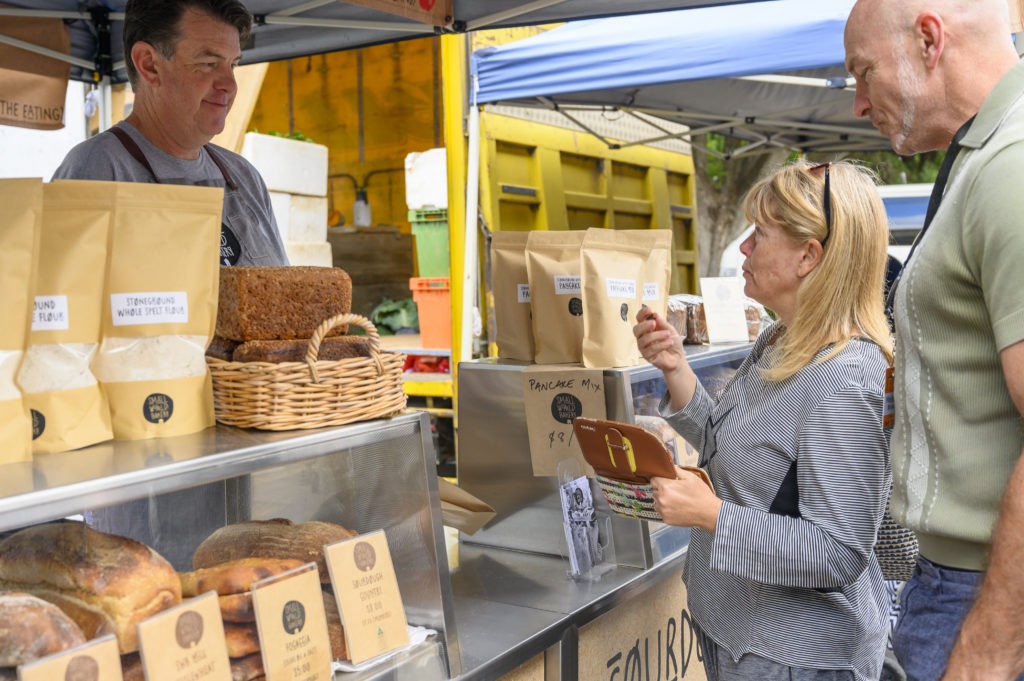
The personal touch
Supporting local producers by buying from them at farmers’ markets is certainly a different way to shop, particularly if you’re used to rushing through a big chain supermarket on your way home from work. It’s a more personal experience, as McGregor points out.
“You get to meet and know the person who grows your food, which means you develop a relationship with the people behind the food,” she says. “It’s completely different to shopping in the supermarket. As well as the social aspect and the feel-good aspect, it’s better for you. I mean, you’re looking at produce that hasn’t travelled many miles or been kept in cold storage. It’s fresher, so it’s usually more nutrient-dense as a result.”
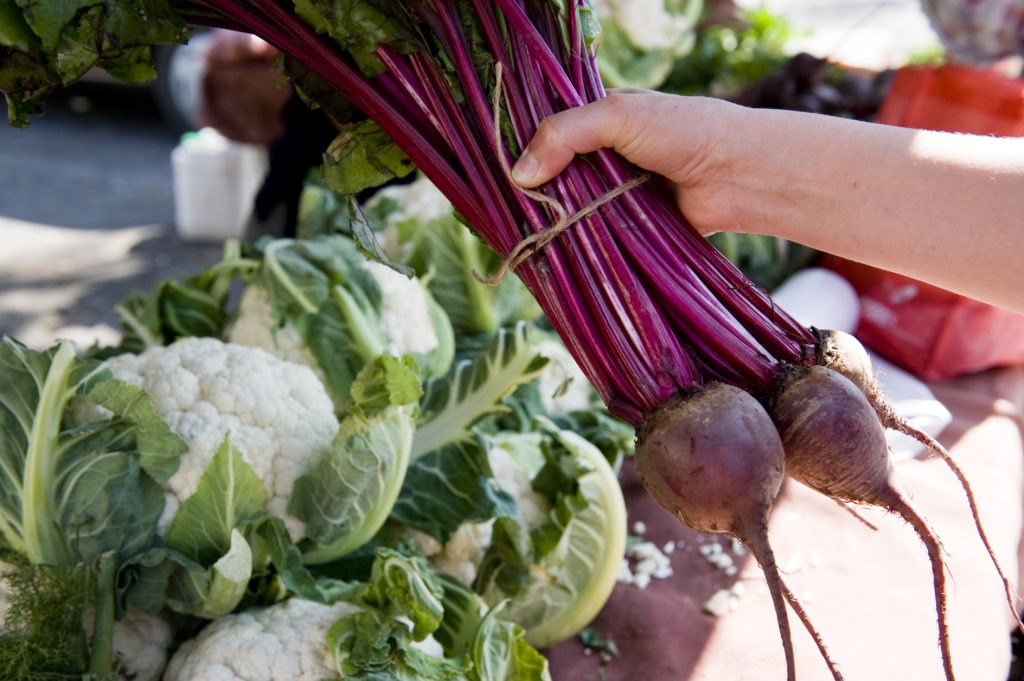
Season’s eatings
Mitton says that the fresh, seasonal produce available at her market has even changed the way many of her customers eat and think about food.
“They eat seasonally because they buy what produce is available at the market,” she says. “And then they plan their menu around that produce.
“We also have some amazing restaurants around the McLaren Vale region. Lots of the chefs say they get their inspiration for their dishes from produce at the market. It’s another level of local food. When you’re going out and eating in some really top-class restaurants that have sourced their produce from the local market? It’s awesome.”
Meanwhile, the Willunga Farmers’ Market online food delivery system has been so successful, Mitton is unsure how – or if – the team will be able to wind it back now that restrictions are easing and things are getting back to normal.
“We may continue to offer something along those lines,” she says. “We’re not quite sure what it will look like. Whether it’ll be the same or whether it’ll be more of a basic produce box. We haven’t quite stopped to think about that too much yet, although there’s certainly the demand for it. But part of the enjoyment of shopping at the market is actually being there. Any produce box scheme will never replace that.”
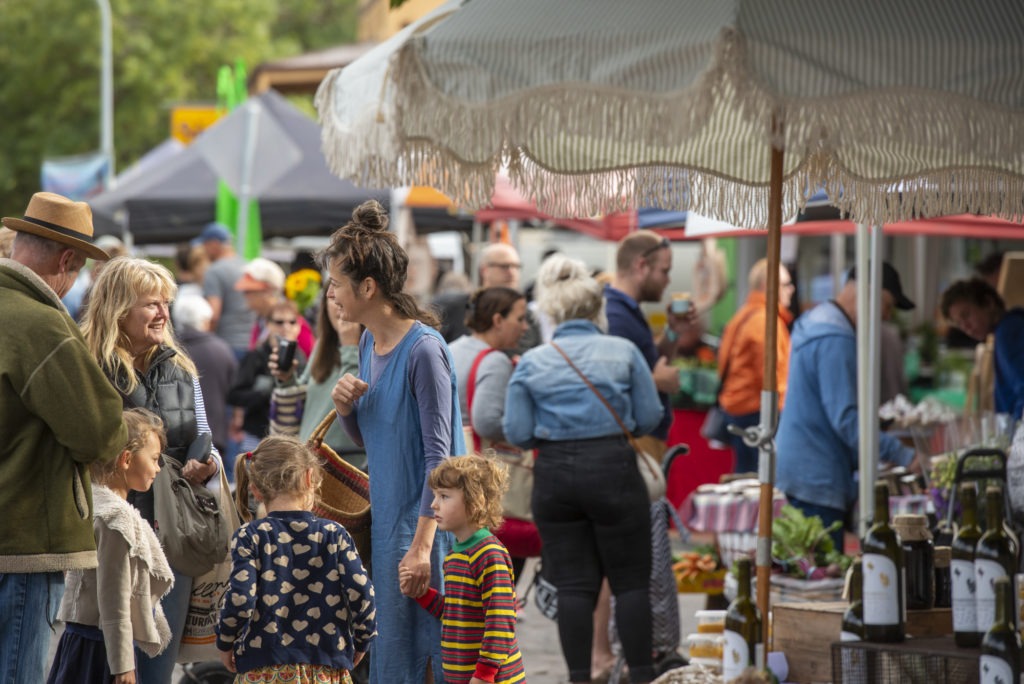
A secure supply
Both Mitton and McGregor have been encouraged by the ongoing community support that their markets have enjoyed during such a tumultuous time. And while our food supply chains have been under extreme pressure, the reassuring presence of local farmers’ markets continuing to operate and provide a steady supply of fresh food has served as a timely reminder of just how important our local farmers and producers are.
“The continued support of the local community has been very strong,” says Mitton. “They were very nervous about the market being closed due to COVID-19, and have been very grateful that the market has been able to adapt so quickly.”
Once things get completely back to normal, it would not be surprising if farmers’ markets only grew even more popular, as people have become even more keenly aware of how valuable such a service can be – pandemic or otherwise.
“I think people have always appreciated farmers’ markets, and what they can offer,” McGregor says. “But COVID-19 has probably made people more aware of what an important role farmers’ markets actually play in food supply and food security.
“At the height of coronavirus, when people were panic-buying in supermarkets and there were empty shelves, what stood out at the farmers’ markets was the fact that this didn’t happen. There was a reliable local supply every week. The supermarket food shortages really highlighted the fact that farmers’ markets are vital to the local food supply.”
To find a market near you, go to the Australian Farmers’ Markets Association website.


